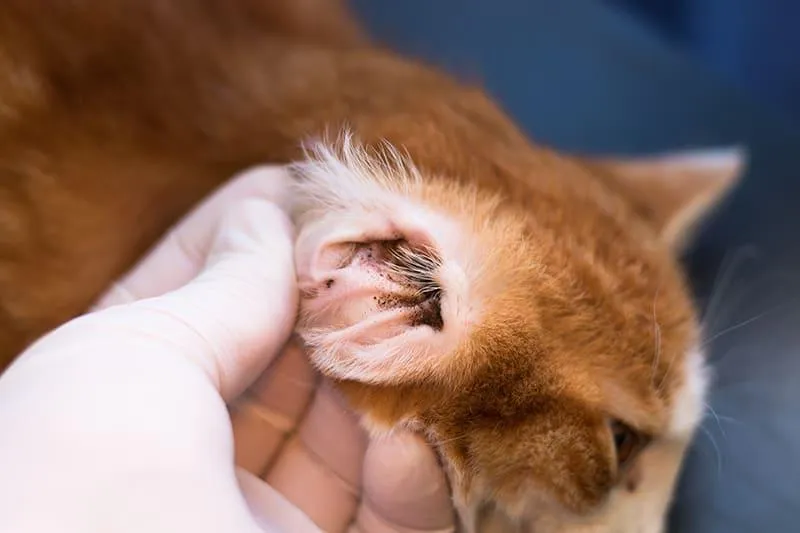

Common Illnesses
Cats, like all animals, can be susceptible to a wide range of illnesses.
Here are some of the most common illnesses seen in cats and ways to prevent them:
Upper Respiratory Infections (URIs): URIs are similar to the common cold in humans. They can be caused by viruses, such as feline herpesvirus and calicivirus, or bacteria. Symptoms may include sneezing, coughing, nasal discharge, and eye discharge.
To prevent URIs, make sure your cat is up to date on vaccinations, keep them away from infected cats, and maintain good hygiene.
Dental Disease: Dental problems are common in cats, and they can range from bad breath to more serious conditions like periodontal disease. You can help prevent dental issues by regularly brushing your cat's teeth, (if they'll let you!), providing dental treats or toys, and scheduling regular dental check-ups with your veterinarian.
Fleas and Ticks: Fleas and ticks can cause itching, skin irritation, and transmit diseases. Use preventive treatments recommended by your vet, regularly inspect your cat for parasites, and keep your home environment clean.
Worms: Cats can contract internal parasites like roundworms, tapeworms, and hookworms. Regular deworming and keeping your cat indoors can help prevent these infections. Keeping them flea free also helps, as fleas can carry tapeworms.
Obesity: Obesity is a growing concern in cats. Feeding them a balanced diet, providing regular exercise, and avoiding excessive treats can help prevent obesity, just as in us humans.
Urinary Tract Diseases: Conditions like urinary tract infections and bladder stones can cause discomfort and difficulty urinating. Ensure your cat has access to fresh water at all times, feed them a high-quality diet, and encourage regular urination to reduce the risk.
Kidney Disease: Chronic kidney disease is common in older cats. Regular veterinary check-ups and a balanced diet can help in early detection and management.
Diabetes: Diabetes can be managed with a proper diet and insulin injections, but prevention is best. Maintain a healthy weight for your cat and feed them a balanced diet to reduce the risk.
Cancer: Cats can develop various forms of cancer, just as we can. Regular veterinary check-ups can help with early detection, and avoiding exposure to environmental toxins may reduce the risk.
Heartworm Disease: Although more common in dogs, cats can also be infected with heartworms. Use preventive medication as advised by your vet to protect your cat.
To prevent these common illnesses in cats:
Regular Veterinary Care: Schedule annual check-ups with your veterinarian, and follow their recommended vaccination and preventive care protocols.
Proper Nutrition: Feed your cat a balanced diet appropriate for their age and health status.
Hydration: Ensure your cat has access to clean, fresh water at all times.
Parasite Control: Use flea and tick preventives, and follow your vet's recommendations for deworming.
Hygiene: Maintain a clean litter box and living environment to prevent the spread of disease.
Regular Exercise: Engage your cat in regular play and exercise to maintain a healthy weight and mental stimulation.
Stress Reduction: Minimise stressors in your cat's environment, as stress can weaken their immune system.
Remember that every cat is unique, and their healthcare needs may vary. It's essential to work closely with your veterinarian to develop a personalised health plan for your feline companion.